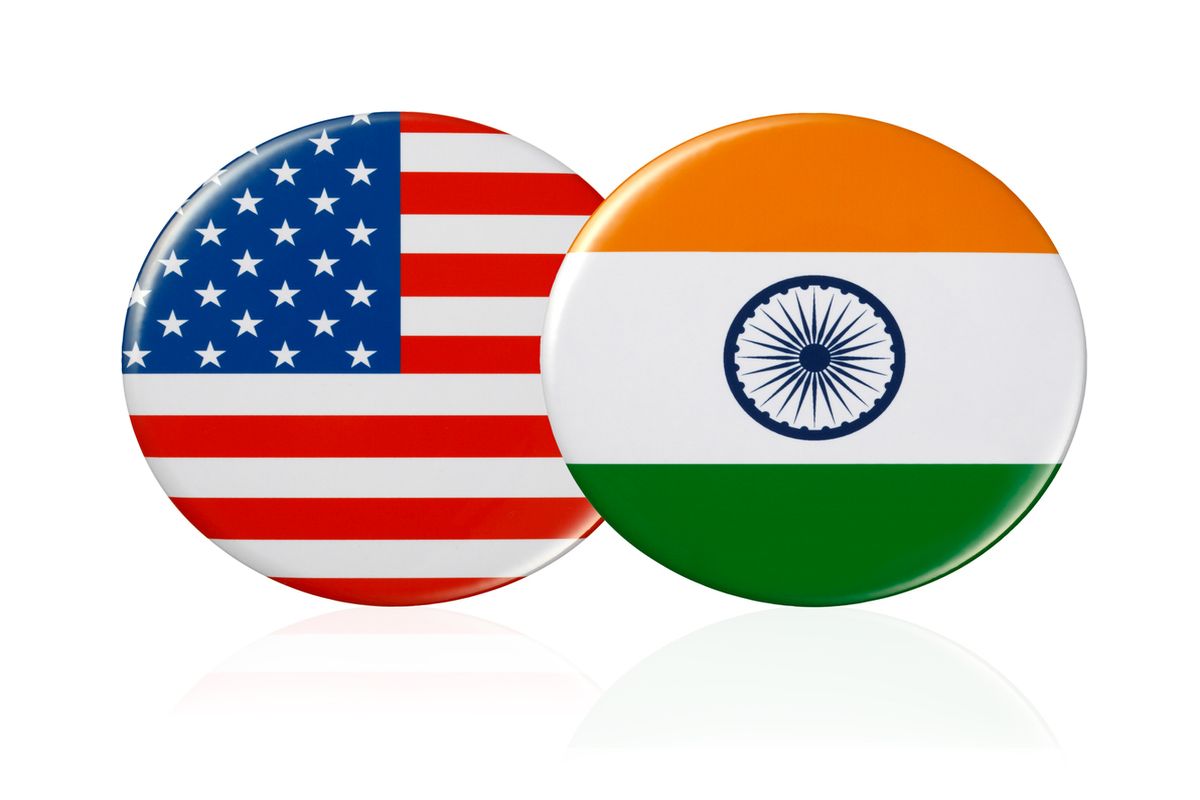Border Message
In the tumultuous landscape of immigration discourse, the resonance of former President Donald Trump's border message extends far beyond his political base.
The nearly four million-strong Indian diaspora plays a significant role in the US economy and its politics.

(Representational Image: iStock)
After the G-7 meeting in Biarritz last week, the Modi government was quite happy about his success in dealing with world leaders including US President Donald Trump on the issue of Kashmir. Within days the American embassy has expressed concern (on Thursday) about the human rights situation and said, “The US is watching the situation in J and K. We continue to call for calm and restraint including on rhetoric.” As expected the Kashmir issue was raised in Modi’s meetings on the sidelines of the summit with the G-7 leaders. Trump had accepted Modi’s assertion that Kashmir is a bilateral issue and he had the situation “under control”.
The White House has even claimed that one of the takeaways of the summit was the reduction of India-Pakistan tensions. When Modi goes to New York next month to participate in the UN General Assembly, he will have his hands full if the Kashmir situation deteriorates. The first danger comes from Pakistan where Prime Minister Imran Khan has been raving and ranting after the bifurcation of Kashmir by Modi. A Pakistan minister has even speculated this week that there could be war between the two countries any time. Moreover, unless the normalisation is faster, the international community will continue to have concerns. Many stakeholders including three former chief ministers – Farooq Abdullah, Omar Abdullah and Mehboobha Mufit – have been under house arrest as also many other local leaders.
Once they are freed, the situation could turn any way. So what happens in Kashmir and how Pakistan behaves are the two most important things for the future. New Delhi is keen to strengthen its ties further with the US, while for the US, India represents a huge longterm economic opportunity. It is the world’s seventh largest and the fastestgrowing economy. India can also serve as a vital partner for the US in the Asia-Pacific region and be propped up to balance a rising China. Secondly, India and the US have differences on issues ranging from trade, defence, security, technology, energy and Iran. Strong policy differences on trade have strained Indo-US ties.
Advertisement
To make any progress, the Trump administration wants New Delhi to address relevant policies, including data localisation and e-commerce measures. It is also important to sort out Trump’s complaint of what he calls “unfair trade”. The Trump administration wants India to lower trade barriers and embrace “fair and reciprocal” trade. India’s goods and services trade with the US is estimated at $142.1 billion in 2018. There is now a US trade deficit with India. In June, the US withdrew its trade concession to India and also imposed higher duties on aluminium and steel. In retaliation, India also slapped duties on 28 products including almond and walnuts. The US is disappointed that Modi has taken a step backwards by raising tariffs to generate revenue.
To assuage his feelings, Modi had informed Trump during the meeting that India plans to further step up imports, including oil from the US and that $4 billion worth of imports were already “in the pipeline”. It is possible Washington could soften and agree for an exemption to India’s steel and aluminum tariffs and India could offer specific concessions on information technology imports. Commerce minister Piyush Goyal will soon travel to Washington to sort out trade-related issues. Thirdly, though over the past decade, defence ties with the US have grown ($17 billion) the US is upset at New Delhi for buying the S 800 TRIUMF missile system from Russia.
This irritation needs smoothening. Fourthly, immigration is one of the important issues and Trump has made it tougher to get H 1 visas and has also hiked the visa fee. The nearly four million-strong Indian diaspora plays a significant role in the US economy and its politics. There are over 130,000 Indian students studying in various US universities. It is no secret that Afghanistan is an area where the US is depending on Pakistan for transit and logistical support.
The US and the Taliban seems to be nearer an agreement under which the US would withdraw in exchange for guarantees that Afghanistan would not become a haven for other terrorist groups. Trump wants a smooth withdrawal and he needs Pakistan in this regard. However, there are some areas like counter-terrorism and preserving South Asian stability where the two countries have converging interests. Pursuing stronger ties with each other would be a clear win for both and for this, the Trump and Modi administrations might agree to address their economic differences.
Advertisement